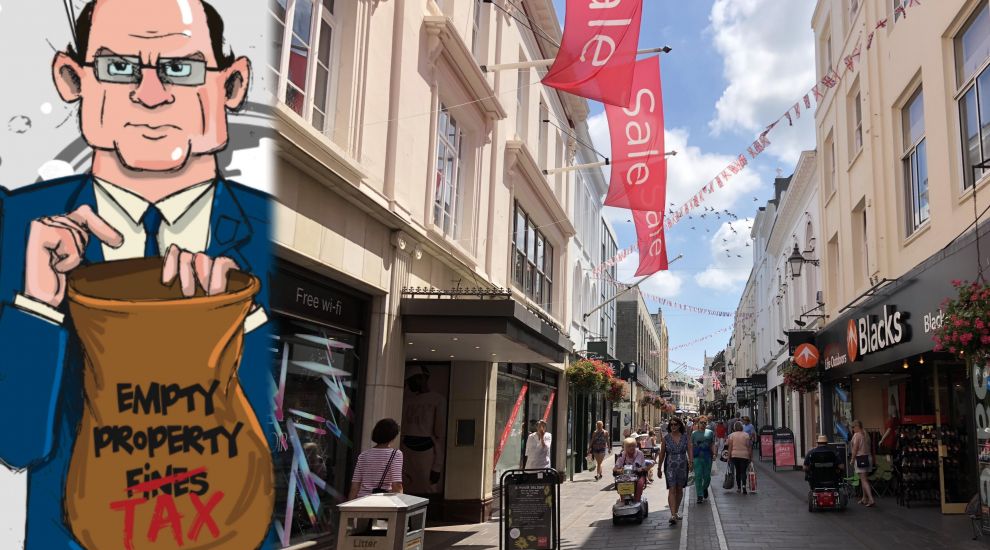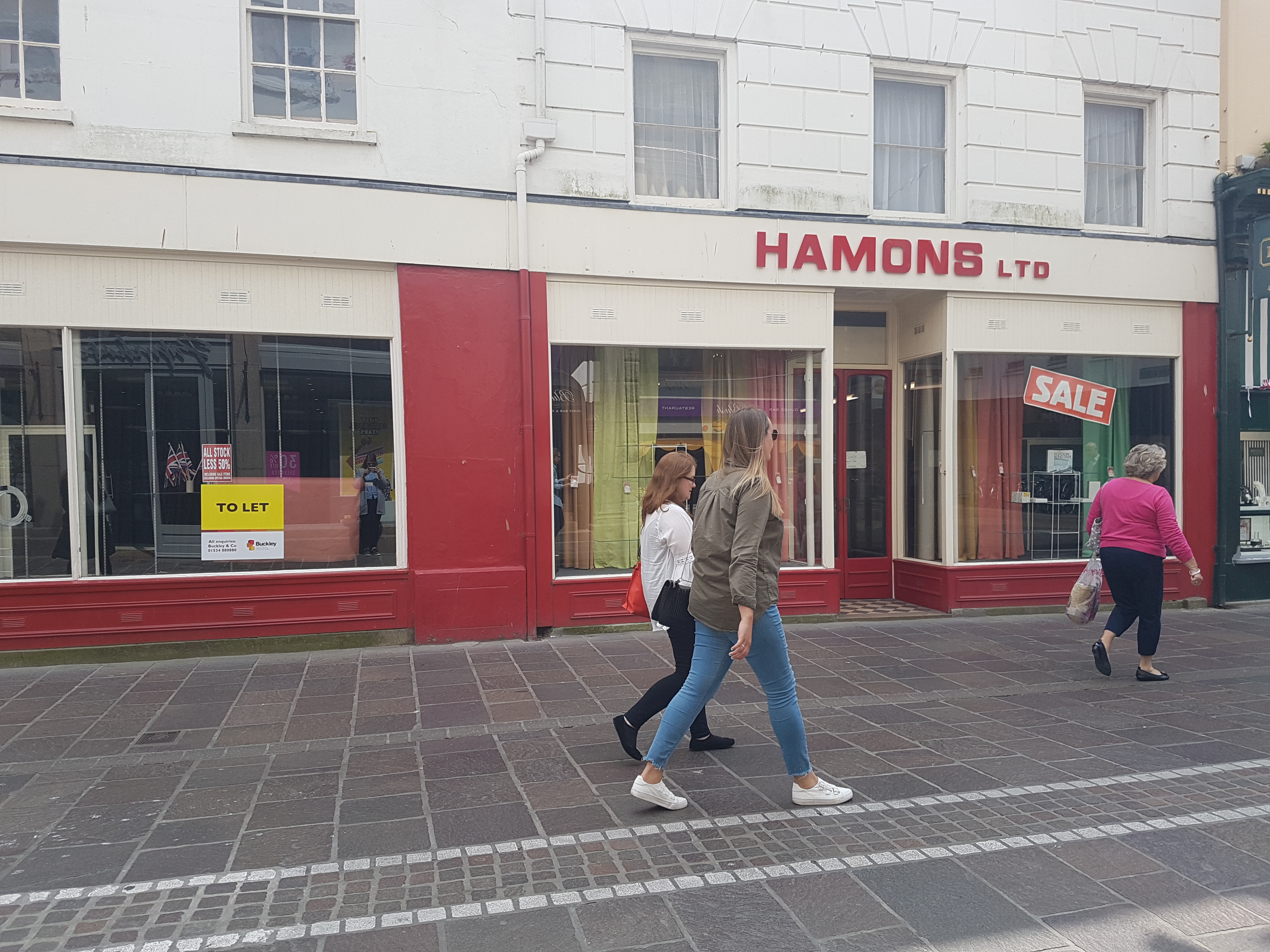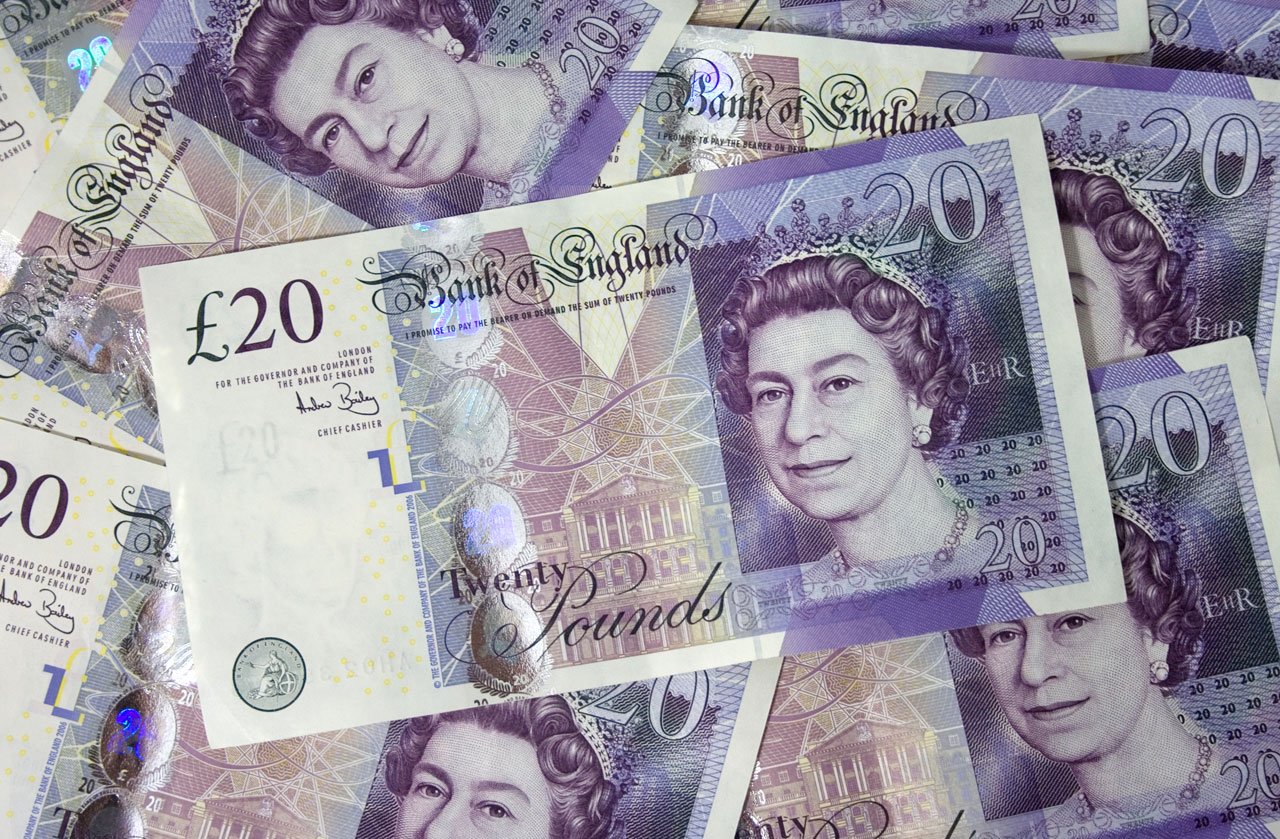

Is taxing owners of empty properties the right way to fix the retail industry's problems? For the secretive business guru known only as 'The Fool', the answer is clearly 'no' - in fact, he thinks it could make things much worse.
"There is a word for the practice of compelling a person, through the threat of force or loss, to act in a way that runs contrary to their own wishes.
If a big guy, let’s call him ‘Tony’, sporting a challenging line in velour casual wear, enters your premises and demands some of your money with the implied threat of financial loss if you fail to comply - and we’re being generous - we call it 'coercion'. (There are alternative words like ‘extortion’, which invariably lead to such other amusing utterances as ‘Oooh, whey, whoa’ and ‘reconstructive dental surgery’.)
If certain people get their way, however, and it is agents of the state who come knocking on your door demanding payment because of something you have failed to do, we will shortly be ‘invited’ to refer to that coercion as the collection of a ‘Vacancy Tax’ - a torturing of semantics sufficient to make even ‘Big Tony’ blush.

Pictured: St. Helier's Constable, Simon Crowcroft, recently mentioned the possibility of an empty property tax to make sure shops don't stay vacant in the centre.
Our town’s very own Mr Big, the Constable of St. Helier, in his valiant quest to ‘save the high street’, has suggested that the owners of shop premises who fail to fill their property with tenants, be charged a tax on their empty properties. The strong evidential basis on which this significant economic experiment might be undertaken appears to be that certain other places are also trying this tactic (with, it turns out, questionable levels of success).
The levying of a tax is usually the government taking its share of somebody else’s profit or gain (earnings or capital), or to attempt to prevent us from doing things that the government doesn’t want us to do (smoking, drinking, buying one’s own house etc.) A tax that punishes somebody for NOT doing something, for failure, looks like something else entirely, something we usually refer to as a fine (think breaking a speed limit, failing to pay one’s bills).
But I guess you don’t need to be an expensive employee of a Communications Department to realise that ‘taxing’ sounds so much less brutish (and easier for politicians to support), than ‘fining’, even if the outcomes are identical for all concerned.

Pictured: The Vacancy Tax is aimed at filling up shops, but the Fool doubts it will work.
So what are the likely outcomes of this new tax / fine? The ultimate desire is obviously that property owners are encouraged to engage a tenant to rent their property, accepting, presumably, a lower rent than they had previously sought to charge, in an attempt to avoid the new tax / fine. However, there are undoubtedly other potential outcomes.
Firstly, many empty properties are subject to outstanding leases, where ex-tenants are continuing to honour their agreements, and are paying rent despite having decided to vacate the properties. It is difficult to see how this tax / fine would represent anything other than an additional charge to be borne by the property owner with no additional benefit being received in return. Why would we want to punish the property owner for the actions of their tenant?
Secondly, where properties are empty without a lease being in place, the landlord is already no doubt suffering a loss of income, and is attempting to find tenants. If the new tax / fine is of a minimal nature, then the landlord will presumably bear this an additional cost whilst they wait for their terms to be met.

Pictured: If the fines are substantial, the Vacancy Tax could have a potentially disastrous effect on the value of Jersey retail property warns the Fool.
If, on the other hand, the new tax is of a significant percentage, the implications for the value of Jersey retail property are potentially disastrous. Who is likely to invest the time and money in building or renovating a property only to bear, in addition to the normal financial risks, a further potential penalty (instigated by the States, and thus liable to increase, like most taxes, at any time) if they unable to secure tenants?
Oh, and good luck to those left holding existing properties who might want to sell. We might actually reach the true socialist dream of finally punishing those who provide the much-needed capital to enable economic growth, in the name of ‘fairness.’
One of the basic tenets of economics is that risk and potential reward are usually correlated. If the risk of your investment increases, you want a higher reward to compensate for that increased risk. Adding to the risk (by adding a potential tax) of acting as a landlord means that those same landlords will naturally seek a higher return (i.e. more rent) to compensate. Which sort of runs contrary to the very aims of the new policy, and could actually exacerbate, rather than resolve, the problem.

Pictured: For the Fool, online shopping is to blame for the current state of the retail property market, not greedy property owners.
The most invidious aspect of this new proposal, however, is the assumption that the state is free to punish an individual for not acting as they would wish that individual (i.e. accepting a lower rent) to act. If this proposal gains support, how long will it be before somebody decides that the solution to Jersey’s housing shortage is for a new empty house tax, with all the attendant risks that would bring? (We can of course discount the charge being applied to landlords of commercial properties, given the States’ Financial Services Centre experiment).
The present glut of retail property is not primarily a problem of greedy property owners demanding too much rent. It is largely due to the massive change in shopping habits that society has undergone with the advent of the internet, and the increasing burden of state regulation associated with starting, and running, a new business. Putting the squeeze on those who you already rely on for your income doesn’t work out too well in the long run.
That’s something Big Tony understood long ago."
Read the Fool and more analysis in Connect Magazine by clicking here.
Comments
Comments on this story express the views of the commentator only, not Bailiwick Publishing. We are unable to guarantee the accuracy of any of those comments.